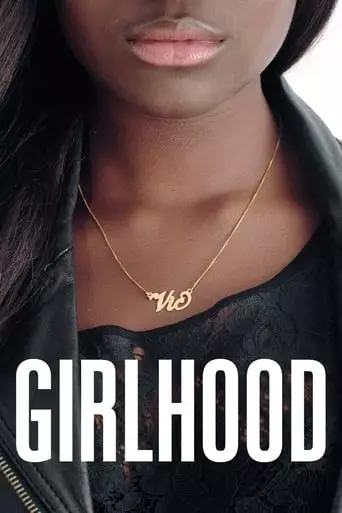
Girlhood (2014) Watch Online Free
Oppressed by her family setting, dead-end school prospects and the boys law in the neighborhood, Marieme starts a new life after meeting a group of three free-spirited girls. She changes her name, her dress code, and quits school to be accepted in the gang, hoping that this will be a way to freedom.
Girlhood is a poignant coming-of-age drama directed by Céline Sciamma, set in the tough suburbs of Paris. The story follows Marieme (played by Karidja Touré), a young black girl caught between the pressures of her environment and her desire to forge a new path. Faced with a challenging home life, where she cares for her younger siblings while her abusive brother holds control over her, Marieme’s life takes a turn when she meets a group of girls who are part of a local gang. Initially shy and withdrawn, Marieme, who later adopts the nickname “Vic,” becomes drawn to their world of friendship, rebellion, and camaraderie.
As Marieme grows closer to these girls, the film explores her transformation into a more confident and independent young woman. The movie reflects on her struggles with her identity, her relationship with her family, and her eventual confrontation with gender, class, and race. Through her friendship with the girls, Marieme finds empowerment and the chance to redefine herself, despite the constraints placed on her by society.
Girlhood tackles several important themes, notably race, gender, and class, as Sciamma gives voice to a marginalized group often overlooked in French cinema: young black girls from impoverished neighborhoods. The film not only explores the deep bonds formed between the girls but also the difficulties and consequences of fitting into societal expectations. It portrays Marieme’s journey to self-discovery while dealing with societal norms about femininity, strength, and beauty. Sciamma’s depiction of female friendship—both supportive and tumultuous—captures the complex dynamics of adolescence.
Moreover, the film delves into the way the world sees Marieme, particularly in relation to her race. A memorable scene shows Marieme being followed by a store clerk who suspects her of theft, a moment that highlights how societal prejudices affect young women of color. Girlhood also critiques the superficiality and the performative nature of beauty, seen through the girls’ transformation with clothing, hair, and attitude. The characters’ appearances, including their bold fashion choices, serve as an expression of defiance and personal agency.
The film also explores themes of personal freedom, particularly through the influence of music and dance. The iconic scene where the girls dance to Rihanna’s “Diamonds” is symbolic of the way they seek escape and freedom in their own way, using music as a form of rebellion and self-expression.
After watching Girlhood, you may feel a mixture of emotions, from empathy to empowerment. The film presents a raw and honest look at the struggles of adolescence in a marginalized community, yet it offers moments of hope and transformation. You might feel moved by Marieme’s journey of self-discovery, her fight against the limitations imposed on her, and her pursuit of a life defined by her own terms. There is a lingering sense of understanding the complexities of female friendships, and how these relationships can both lift and limit the individuals involved.
Moreover, the exploration of race and class will likely provoke deeper reflection on how societal forces shape young lives, particularly for those who are often invisible in mainstream media. The sense of camaraderie between the girls, along with their individual desires to break free from the cycles they are trapped in, might leave you with a sense of melancholy, but also a sense of optimism about the resilience of the human spirit. Sciamma’s film is a beautiful yet sobering portrayal of the trials and triumphs of adolescence, particularly for young women of color navigating a world that often seeks to marginalize them
